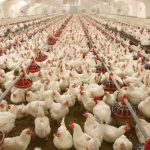The Federal Government has inaugurated a state-of-the-art solar-powered vaccine storage facility with a capacity of 40 million doses, aimed at strengthening Nigeria’s animal health infrastructure. Located in Sheda along the Abuja-Lokoja Road in the Federal Capital Territory, the facility was built through the Livestock Productivity and Resilience Support Project (L-PRES) with support from the World Bank.
The Minister of Livestock Development, who unveiled the facility alongside a co-chair of the Presidential Livestock Reforms Committee, described the project as a strategic step toward improving the country’s livestock sector. He emphasized that the facility addresses critical storage challenges, ensuring the efficient distribution of vaccines nationwide. Designed with a solar-powered system, the facility offers resilience against power disruptions, enhancing its long-term sustainability.
“With a capacity of 40 million doses, we are now better equipped to respond to emerging outbreaks of transboundary animal diseases and zoonotic threats, thereby safeguarding both animal and human health,” the minister stated.
A representative of the Presidential Livestock Reforms Implementation Committee also highlighted the facility’s role in ensuring the health, productivity, and resilience of Nigeria’s livestock sector. He noted that diseases affecting livestock pose significant threats to food security, public health, and economic stability. The new storage facility, he said, is a crucial step in repositioning the sector and aligns with the government’s broader livestock reform agenda.
The minister further revealed plans to commercialize the National Veterinary Institute in Jos, with a goal of producing up to 1.2 billion vaccine doses annually. He credited the success of the new facility to the collaboration between L-PRES and Nigeria’s veterinary authorities, emphasizing that such investments are vital for building a robust animal health system.
The National Project Coordinator of L-PRES echoed these sentiments, explaining that the project stemmed from a thorough needs assessment with the Office of the Chief Veterinary Officer of Nigeria. He pointed out that during the recent anthrax outbreak, L-PRES and the Department of Veterinary Services successfully distributed 13 million vaccine doses across all 36 states and the FCT.
According to him, the new facility will serve as a central hub for vaccine storage, whether locally produced or imported. It will ensure easy distribution, maintain cold chain integrity, track vaccine supply, and support emergency vaccination efforts, reinforcing Nigeria’s capacity to manage livestock health risks effectively.










